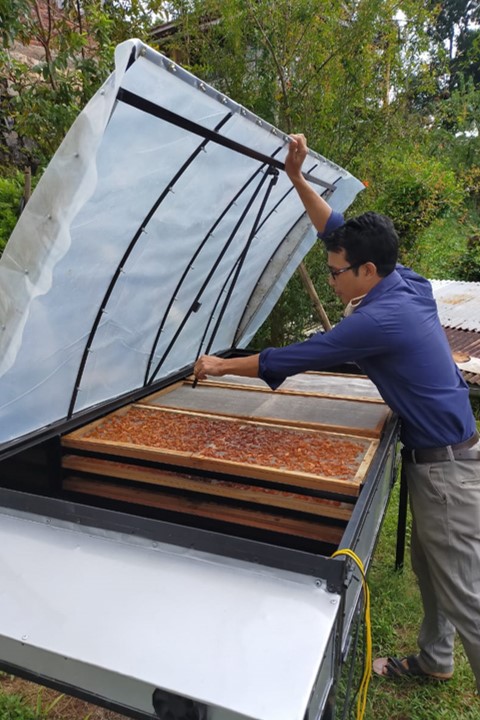About PRIME
Meghalaya is a small state in the North Eastern region of India with a predominantly tribal population (85.9 percent as per the 2011 census). The population of the State is 29.7 lakh, about 80 percent of the population lives in rural areas and is dependent on agriculture and allied activities for their livelihoods. The State Government seeks to promote Entrepreneurship and understands the need for private sector led growth as core development strategies. Accordingly, substantial efforts have been made in the last few years towards building an entrepreneurial ecosystem in the State.
The State Government has launched a comprehensive program that looks at enterprise promotion and incubation in a holistic manner. This program is called the PRIME (Promotion and Incubation of Market-driven Enterprises).

In August 2018, the Government of Meghalaya has launched the Meghalaya Startup Policy. The main objective of the state is to, “emerge as one of the leading ‘Startup Hubs’ in India by 2023 through strategic partnerships, conducive ecosystem, investment and policy interventions”. The Enterprise Development Strategy and the Startup Policy are meant to ensure that startup entrepreneurs are provided holistic support from the state to launch and grow their enterprise.
The PRIME program, initiated by the Government of Meghalaya, is working towards implementing the initiatives outlined in the Meghalaya Startup Policy.
Key components of the PRIME program
Setting up PRIME HUBS as the anchors for enterprise promotion in all district and block headquarters by upgrading existing Enterprise Facilitation Centers. The PRIME HUBS will be centers for Innovation, Knowledge sharing, Incubation and Skill development
Selecting top entrepreneurial ideas annually (about 100) and incubating them. These small but highly impactful number of STARTUP ENTERPRISES will be largely innovation based and will be the vanguard of entrepreneurship in the state.
Incubating 10,000 micro and NANO ENTERPRISES (predominantly imitation based), in a five year time frame, through providing comprehensive business development, market and technology access and credit linkages at the PRIME HUBS.
Supporting 50,000 LIVELIHOOD ENTERPRISES, which are predominantly single individual livelihood activities, through the networks of Self Help Groups and Cooperative Societies.
Creating dedicated funding windows, interest subvention programs and credit enhancement through First Loan Default Guarantee (FLDG) schemes to provide comfort to banks and financial institutions that lend to all the three categories of entrepreneurs.
Using mindset interventions to ensure greater entrepreneurial success and nurturing entrepreneurial mindsets in schools and colleges.

PRIME’s Vision
To make entrepreneurship a preferred career choice for the youth of the State through creation of a dynamic and collaborative ecosystem that enables easy availability of credit, relevant technology, skilling and mentoring support and access to high leverage markets.
PRIME’s Mission
To provide systematic and targeted support to aspiring entrepreneurs through a network of PRIME HUBs that will be the one-stop-shop for the different segments of entrepreneurs in the State.
PRIME’S Strategy and Approach
Skills
Skills cut across the entire entrepreneurial journey, from aspiring to be an entrepreneur to becoming a nano entrepreneur. The state will work with organizations that have worked on supplyside entrepreneurship development, for entrepreneurial training, mentoring and domain (technical) expertise and showcase and build on their efforts.
Technology
Technology will be a crucial driver for disseminating knowledge, increasing enterprise productivity and operational efficiencies. It will also be a key output in delivering enterprise action agenda (e.g., online peer networks, opportunity maps, etc.)
Market
For all types of enterprises, both forward and backward linkages, have much to do with geography and sector. Our learnings suggest an overemphasis on technical and general business development services than sector/geography specific value chain services. Understanding and building a strong demand side network to support entrepreneurs while also building entrepreneur’s ability to recognise and serve local demand will be critical
Credit/Finance
Timely, low-cost and adequate financing has been a challenge for enterprises that are willing to pay a higher rate of interest. On the supply side, micro-entrepreneurs are believed to be ‘hard to reach’ and ‘risky’ to serve. Creating solutions to de-risk, reducing opex of loan servicing and identifying the new approach to access capital will be some of pathways to unlock this breakthrough.
Segmentation of Entrepreneurs
Under the PRIME program, any individual or organization or collective producing goods and services for the market is considered an entrepreneur.
In Meghalaya, there are three broad segments of entrepreneurs, which are Startup Entrepreneurs, Nano Entrepreneurs, and Livelihood Entrepreneurs.
Definition
- They run innovation based enterprises, who produce value-added or improvised goods/services.
- These enterprises typically grow to have more than 20 employees and also include medium, small and micro enterprises as well as technology based startups.
- Area of coverage extends beyond a block or district.
Examples
- Tech startups
- Large exporters of agricultural produce
Definition
- They run regular, non innovation or imitation based enterprises that use local resources and opportunity or solve a local problem.
- Employ or create additional income for 2-20 people.
- Serve local communities
Examples
- Aggregators of agriculture produce
- Small value addition units
- Small tourism resorts, restaurants, travel agents
Definition
- They are solo or single entrepreneurs who primarily operate at local levels and efforts are made to increase productivity.
- These entrepreneurs are also feeders to many startup and nano entrepreneurs across sectors such as agriculture, horticulture, sericulture and apiculture among others.
Examples
Farmers, weavers, livestock rearers


